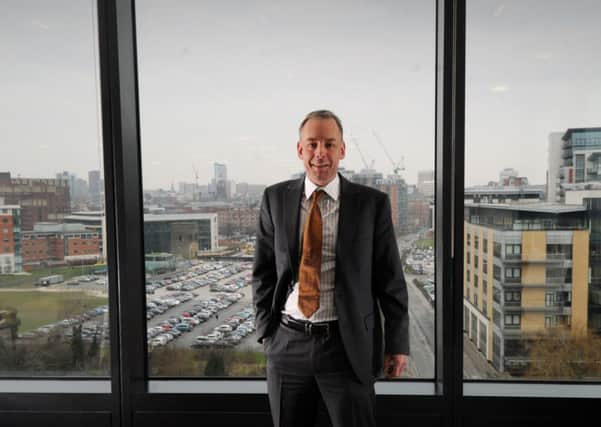GDF Suez Energy UK boss warns politicians against fixing energy prices


Guus Weiss, of Leeds-based GDF Suez UK, said the French government fixed prices and deterred new players from entering the consumer energy market.
Mr Weiss told The Yorkshire Post: “I understand that energy is an essential of life.
Advertisement
Hide AdAdvertisement
Hide Ad“We see that in Europe, that there is more and more energy poverty so the Government wants to do something against that; that is very understandable.
“But if the oil price or gas price would move up, then you cannot ask companies to take the hit on that. You will not have competition anymore.”
The French government brought in energy price caps for private users in 2008, triggering years of legal wrangles with power producers. Labour leader Ed Miliband has pledged that a Labour government will freeze energy prices for consumers until 2017.
Mr Weiss said that new entrants with new products and different business models now account for seven per cent of the consumer market in the UK.
Advertisement
Hide AdAdvertisement
Hide AdGDF Suez UK supplies gas and electricity to British businesses, generating annual revenues of £1bn.
It is part of a French-owned group that operates across 70 countries and has sales of more than 81bn euros.
In an interview with The Yorkshire Post, Mr Weiss called on MPs to improve the consistency of energy policy, claiming that his industry spends more money on adapting to changing levies and taxes than on developing new products for customers.
He also predicted that the part of energy bills made up of taxes and levies will continue to grow.
Advertisement
Hide AdAdvertisement
Hide AdThe proportion currently stands at around 30-40 per cent but could rise to 50 per cent within the next two years, said the Dutchman.
This increase will help pay for investment in the UK’s energy production capacity.
Falling energy prices have been a defining feature of the global economy over the last year with commodities halving in value.
Asked how long prices would remain so low, Mr Weiss said: “The only thing that we know is that it is really unpredictable. I don’t want to forecast that.
Advertisement
Hide AdAdvertisement
Hide Ad“If you look historically over the last 20 years, we have seen those prices before. It is my gut feel they will go up, but when… I don’t know.”
He said the Western world has seen a decrease in energy demand since the financial crisis of 2008. Meanwhile, energy markets have been impacted by the rise of unconventional sources of power.
Mr Weiss said: “You are aware of fracking in the United States. The US has become an exporter of natural gas, where it was a vast importer, and that is an absolute game changer and one of the reasons why oil is at such a low price.
“We know there are gas resources in Europe and here in the UK and it is a political decision whether or not you want to explore and to frack that gas and use it.
Advertisement
Hide AdAdvertisement
Hide Ad“If it can be done on a large scale then gas prices will stay low. If not, we will see what is going to happen.
“We always thought there was a short supply of oil and we would be squeezed and ever since the 1970s we thought that.
“But we find we are creative as humankind and we find new resources and new technologies; renewable energy of course has made an impact on the demand for oil and gas.” Mr Weiss said his biggest concern for the UK is that it remains competitive, at least in Europe.
Uncertainty in the UK
GDF Suez owns a number of energy-producing assets in the UK and recently invested £500m in a gas storage facility in Cheshire.
Advertisement
Hide AdAdvertisement
Hide AdAsked if the group would invest in more UK assets, Guus Weiss said: “We look at the market and how we expect it will develop. There is quite some uncertainty in the UK market on energy production.
“We compete with our competitors on assets but we also compete internally; we can build an asset here in the UK, but we can also build an asset in Malaysia or Indonesia or the Middle East.
“If you look at the predictability in those countries it is often higher than it is here.”